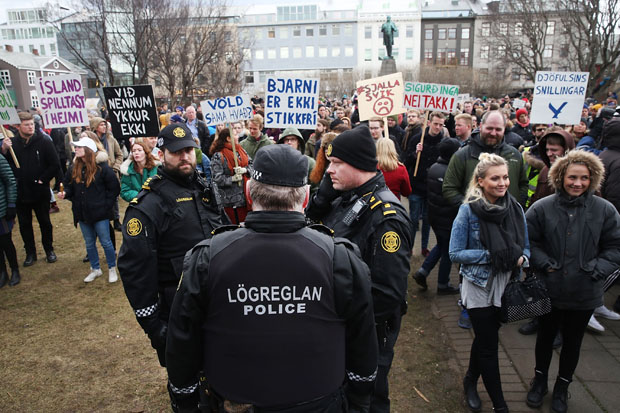The 11 million documents leaked from Panama lawyers Mossack Fonseca tell us much that we know already. It’s hardly news that the Central American state is a popular destination for those who dislike paying tax. But to obsess about this aspect of the story, as so many did this week, would be to miss the most striking discovery, which is just how many politicians and government officials have been using Panama to disguise their extraordinary wealth.
Few were under any illusions about Vladimir Putin being a good and faithful public servant, yet it comes as a surprise that he appears to have a personal fortune that would have made the tsars look like paupers. According to the International Consortium of Investigative Journalists, which has analysed the 11 million leaked documents, friends and associates of the Russian leader have channelled $2 billion through Panama over the years.
At least 140 other politicians have been using banking facilities in Panama. Many of the names might be expected — from members of the Assad family to the king of Saudi Arabia, and Hosni Mubarak, the former president of Egypt. Others were more surprising, such as Sigmundur Gunnlaugsson, the prime minister of Iceland (who has now resigned). David Cameron is also caught up in the revelations, albeit at a remove. The Downing Street aide who tried to dismiss revelations about an offshore trust run by the Prime Minister’s late father as a purely private matter should watch the television pictures of the protests in Reykjavik. Nothing fuels anger so much as politicians burdening their people with taxes while seeking cosy offshore arrangements for themselves.
You cannot blame a son for the opportunistic financial arrangements of his father, even if they did help pay his school fees. The Prime Minister heads a government that has outlawed some of the practices his father employed to avoid paying tax on a trust that he ran. But Cameron also heads a government that charges one of the highest top rates of tax in the world: 47 per cent, once National Insurance is included. It is a policy that could have been designed to help the accountants who come up with perfectly legal yet definitely shifty schemes involving places like Panama.
The answer lies not in Jeremy Corbyn’s extraordinary suggestion this week that the government should impose direct control on the British Virgin Islands and other overseas territories that are used as tax havens. It would be better for Britain to create a tax system that attracts business rather than sending it scurrying for cover. There is, after all, no point in extolling the benefits of globalisation if you are not prepared to accept that businesses are now highly mobile in their tax affairs: countries must compete. And a Britain that taxes people at a confiscatory rate of 47 per cent is not very competitive. The Chancellor knows that the Treasury is losing money as a result, but he has not found the courage to reduce it to the 40 per cent rate of the Labour years.
In opposition, George Osborne was an advocate of much flatter taxes — eliminating special treatment for the few in favour of lower rates for everyone. He recently pointed out that when he cut the top rate from 52 per cent, there was an increase in tax revenue of several billion pounds. He wanted to reduce the top rate to 40 per cent in the last parliament but was vetoed by Nick Clegg. Who is vetoing him now?
Closing loopholes will not solve the problem. The Chancellor had it right first time: a flatter, fairer, simpler tax system is the most effective way of drawing money back from the tax havens.
You read it here first
A year ago, The Spectator broke the story about Kids Company and the antics of its founder, Camila Batmanghelidjh. The charity was squandering donors’ money. Civil servants wanted to stop any more government resources being misspent but they had, outrageously, been overruled by the Prime Minister’s office.
Miles Goslett’s report revealed every major fact of the scandal. It took the newspapers and the BBC months to pick up his trail. This week, the London Press Club judged his article to be Scoop of the Year — one of the most coveted awards in British journalism.
It was a hotly contested category, which showed the enduring vitality of British newspapers. The Sunday Times was nominated for its agenda-setting exposé on athletics doping, the Sun on Sunday for revealing Lord Sewel’s cocaine habit, and the Daily Mirror for disclosing how the Hatton Garden diamond thieves pulled off their heist.
To win against such competition is testimony first and foremost to the courage and tenacity of Mr Goslett. It’s also a reminder that, while The Spectator has always brought its readers the finest reviews, opinions and analysis, our scoops can also rank among the very best.






Comments